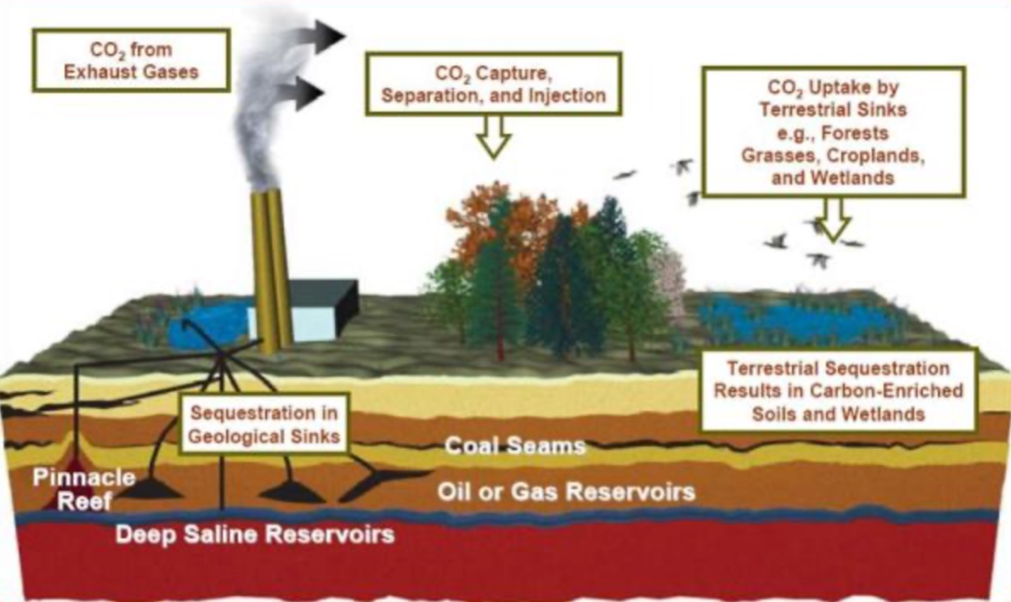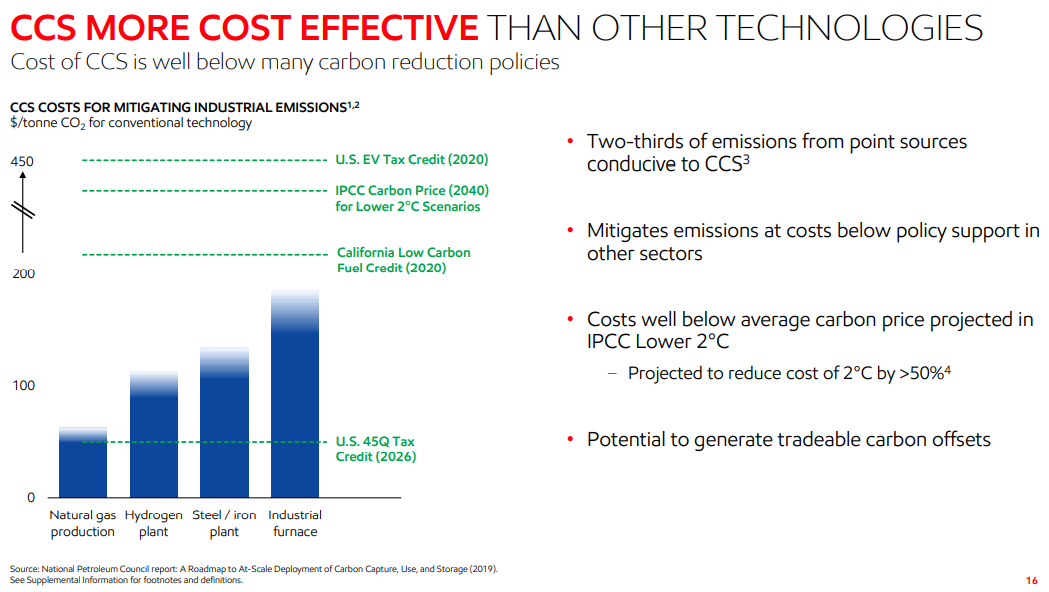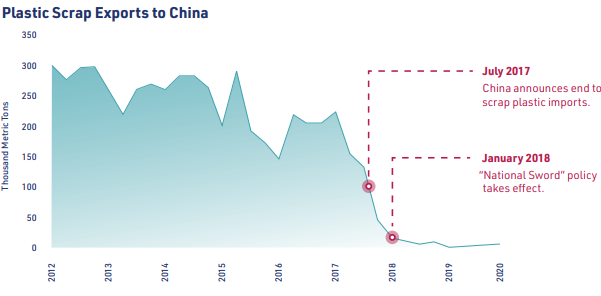Today we want to focus on an FT article that discusses Members of Parliament criticizing the current UK climate plan as it does not chart an exact path to 2050 goals. If any country is going to achieve the goals of the Paris Agreement their path should probably be unclear at this time, in that transitional steps are needed to get from here to 2050, which are improvements on current power, and transport systems but not the ultimate solution. Furthermore, we still need some new technology, either improvement in current processes or radical breakthroughs to solve some of the harder emission problems.
ESG and Climate Change: The Un-helpfulness of Political Grandstanding
Mar 5, 2021 12:19:45 PM / by Graham Copley posted in ESG, Carbon Capture, Climate Change
Carbon Capture's Day is Coming...
Mar 4, 2021 10:55:21 AM / by Graham Copley posted in ESG, Carbon Capture
With ExxonMobil anchoring much of its “greener” strategy in carbon capture at its analyst day yesterday, the subject of lower-carbon fuel has been elevated and ExxonMobil is not the only one talking about it. More than 75% of the carbon footprint of a hydrocarbon-based transport fuel today comes out of the exhaust or stack when the hydrocarbon is burned – to fuel an engine or create steam for a turbine. The oil companies can capture carbon on refineries, reduce methane leaks, use renewable power for pumping and their transport fuel – to move materials to market, but they cannot do anything about the 75% - Scope 3 – emissions without buying offsets, or sequestering more carbon than they produce (which is Oxy’s plan). Whether a consumer will be more attracted to a “lower-carbon” gasoline remains to be seen, but they are unlikely to pay more for it but might buy preferably if the price was the same – which might be possible if the fuel providers were lowering their costs by avoiding a carbon penalty.
Carbon Pricing: Tax Could Enable a Game Changer
Mar 2, 2021 10:30:26 AM / by Graham Copley posted in ESG, Carbon Capture, Wind Power, Biofuels
The most significant item worth discussing today is yesterday’s news that the API is likely to support a carbon pricing mechanism in the US. We will have more on this in our ESG and climate piece tomorrow. This is not a game-changer in itself, but it opens the door for one. Imposing a cost on emissions, whether a direct tax or a trading mechanism, as in Europe (but hopefully better managed in the early stages), will likely drive real change and significant investment, as it has done in Europe. The devil will be in the details and how many loopholes are attached to any regulation. For example, the chemical and energy industries are likely to lobby hard for no carbon taxes on exports for fear of losing competitiveness.
The Complexity of Recycling & CO2 Footprints
Feb 25, 2021 11:57:09 AM / by Graham Copley posted in ESG, Carbon Capture, Recycling
Two things today – first, we find continued calls for “advanced recycling” technologies and systems. A couple of the primary issues are not that advanced, collection, transportation, and cleaning, but all require breakthroughs, which in some instances may be local and not economically replicated elsewhere. The strict FDA demands on what types of recycled polymer can be used in food packaging applications exclude many recycled material streams. This is especially true with many of those who have already had food contact applications. Advances in cleaning might meet FDA standards and increase the available pool of useable polymers. The challenge here is that a cleaning process likely works best once the polymer has reground into standard shapes – which would need to come after any AI-enhanced sorting innovation. That would lead to cleaning more than one stream and keeping the polymers segregated – which would cause inefficiencies. Right now, “advanced recycling” technologies appear to be a euphemism for disposal. Anything that can deal with a mixed and not necessarily clean stream will be breaking the polymers down chemically to form some fuel or feedstock for more plastics – it is a significant step down in value and maybe the word “advanced” is misplaced.
Wind Power - Volatility and Possible Solutions
Feb 22, 2021 9:18:07 AM / by Graham Copley posted in ESG, Hydrogen, Chemicals, Carbon Capture, Wind Power
Texas wind-based power in February 2021:
Global Coordination - Carbon
Feb 19, 2021 12:22:44 PM / by Graham Copley posted in ESG, Chemicals, Carbon Capture, Recycling
One of the subjects we covered in yesterday’s ESG and Climate piece was the need for global coordination around the price of Carbon. We used Canada as an example of how lack of coordination can potentially drive unintended consequences. Canada’s high carbon tax does not apply to products that are exported – which may drive an increase in exports and an increase in imports to exploit the loophole. One of the headlines in today's report talks about the need for Europe to impose a carbon-related tax on imports, to level the playing field for those paying the carbon tax in Europe versus importers (maybe from Canada) that are not paying the tax. We either need a system of global cooperation where everyone pays the carbon penalty equally, domestic users and exporters, or we need carbon-based import taxes that are equivalent, again on a globally consistent basis. The odds of this level of coordination happening are quite low, in our view and almost any legislation will have exceptions and loopholes that will allow traders to exploit unintended arbitrages. This is probably one of the hardest problems to solve as global Governments attempt to form a coordinated approach to climate-related initiatives.
Another Case for Carbon Capture
Feb 18, 2021 10:58:26 AM / by Graham Copley posted in ESG, Hydrogen, Chemicals, Carbon Capture
%20(1).png?width=6000&height=6000&name=New%20C-MACC%20Logo%20-%20Final%20-%20Transparent%20(2000%20%C3%97%202000%20px)%20(1).png)



.png)

